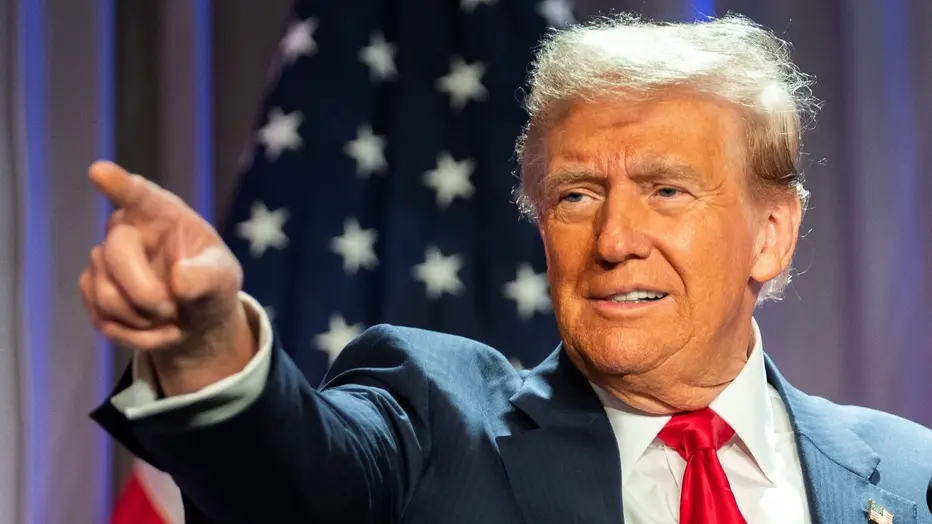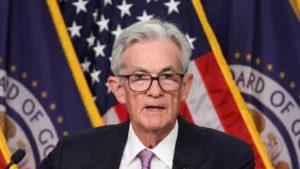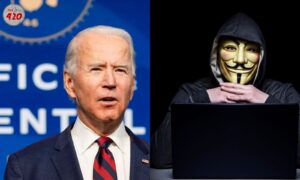
Trump’s Cabinet Picks Signal Shift Towards Loyalty and Conservative Ideals
As President-elect Donald Trump prepares to take office, his Cabinet selections reveal a strong focus on loyalty and alignment with conservative values. This strategy has sparked varying responses within the Republican Party, as some members embrace the shift, while others express concern over potential impacts on congressional influence and policy direction. Trump’s choice to fill top government positions with allies signals his commitment to exercising control over major aspects of the federal administration.
Trump’s Early Cabinet Choices: Loyalty Above All
Since his election, Trump has prioritized appointing individuals who not only share his conservative vision but have also remained loyal through his political journey. Recent picks include close allies and longstanding supporters, such as Rollins, a former Texas policy advisor, who will lead the Department of Agriculture. Rollins is a figure from Trump’s trusted inner circle, known for her strong conservative beliefs and alignment with Trump’s America-first policies.
Another notable appointment is Scott Pruitt as head of the Environmental Protection Agency. Pruitt, a known skeptic of climate change, has previously criticized EPA policies, aligning closely with Trump’s vision for reducing environmental regulations to prioritize business and economic growth. Pruitt’s appointment highlights the administration’s focus on reducing federal oversight on industries, a stance widely supported by Trump’s voter base but met with concerns from environmental advocates and some moderate Republicans.
Congressional Influence and Tensions in the GOP
Trump’s Cabinet choices have highlighted a growing divide within the Republican Party. While many within the GOP are excited about the administration’s firm conservative direction, there is also significant quiet opposition. Some lawmakers are apprehensive about Trump’s consolidation of control over the Cabinet, which could impact the traditional balance of power between the executive branch and Congress.
The tensions reflect an ongoing debate about the direction of the Republican Party. Key figures, such as Senator Mitt Romney, have voiced concerns over the centralization of power, arguing that a balance between executive and legislative authority is crucial for effective governance. These sentiments suggest that some Republicans may push back against the Cabinet choices if they perceive the appointments as undermining congressional influence over policy decisions.
Policy Implications: What Trump’s Cabinet Could Mean for America
- Environmental Deregulation: With Pruitt leading the EPA, we can expect significant rollbacks of existing environmental policies. Trump has long argued that environmental regulations hinder American businesses and contribute to job losses. Pruitt’s appointment may pave the way for policies that support coal, oil, and natural gas industries, which are central to Trump’s economic vision. However, this deregulation stance is likely to spark lawsuits from environmental groups and some state governments.
- Education Policy Overhaul: Trump’s education policies also appear to be taking a distinct conservative direction, as indicated by his support for expanding school voucher programs and promoting educational choice. Some analysts believe that these policies could redirect funding from public schools to private institutions, fundamentally reshaping the U.S. educational landscape. This focus on education aligns with Trump’s core commitment to providing Americans with choices, but it raises concerns about potential inequalities in access to quality education.
- Health Policy and Affordable Care Act Reforms: Another key area to watch is healthcare. Trump has consistently expressed his desire to dismantle and replace the Affordable Care Act (ACA), a promise that was central to his campaign. His Cabinet selections in health-related positions are expected to accelerate efforts to revise or eliminate parts of the ACA. Many Republicans support this move, but it also faces significant opposition from Democrats and citizens concerned about potential impacts on healthcare access and affordability.
Republican Supporters Rally Behind Trump’s Appointments
While some GOP members are cautious, there is a considerable faction of the Republican Party that strongly supports Trump’s decisions. Many conservatives view his Cabinet picks as necessary for implementing the drastic changes that Trump promised during his campaign. Supporters argue that Trump’s loyal allies will ensure that his administration can deliver on core promises without facing internal resistance.
For instance, Trump’s selection of economic advisors has been lauded by the business community for their experience and commitment to free-market principles. These choices are expected to stimulate economic growth by reducing corporate taxes, loosening regulations, and encouraging entrepreneurship. Such moves resonate with Trump’s vision of America as a hub for business and innovation, which remains central to his popularity among the GOP’s conservative base.
Potential Pushback and the Future of Trump’s Administration
Trump’s administration is likely to face challenges from within the GOP and from opposition parties as he implements his vision. Some Republican senators may vote against key nominations if they feel certain policies could harm their constituencies. Furthermore, Democrats are preparing to scrutinize the administration’s moves on issues like environmental deregulation, healthcare, and education, which they view as critical to maintaining public welfare and social equity.
For example, organizations advocating for environmental protection have already expressed concerns about Pruitt’s appointment and his history of opposing the EPA’s mission. Should the Trump administration push for substantial regulatory rollbacks, we could see an increase in legal challenges, creating a complex environment for the administration to navigate.
Conclusion: A Defining Moment for the Republican Party
As Trump’s Cabinet takes shape, it’s clear that his administration will bring substantial changes to the American political landscape. His focus on loyalty and alignment with conservative ideals indicates a shift towards a more centralized and assertive executive branch, a move that is reshaping the Republican Party’s identity. Supporters view this as a long-awaited opportunity to restore conservative values across government functions, while skeptics worry about the potential erosion of checks and balances within the U.S. political system.
The unfolding dynamics within the GOP and Trump’s firm stance on key policy issues will play a significant role in shaping the nation’s future. Trump’s first year in office will be crucial in determining whether his administration can effectively implement its vision and handle the inevitable resistance, both from within the Republican Party and from external opposition. Ultimately, Trump’s Cabinet choices provide a glimpse into an administration that is likely to be both transformative and divisive, setting the stage for what promises to be a defining era in American politics.
Suggested External Links
- Read about the Environmental Protection Agency’s mission
- Explore the current debates on educational voucher programs
- Learn more about the Affordable Care Act and ongoing reforms


